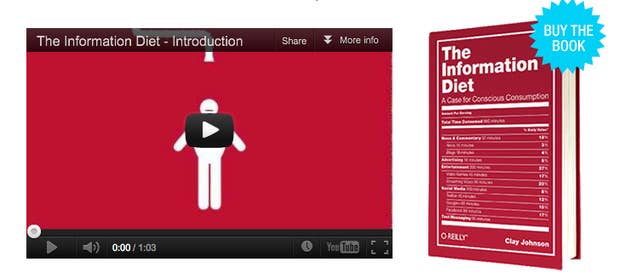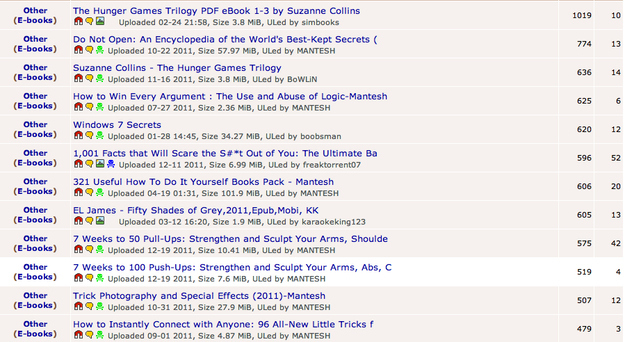
If one file sharing site is to be believed, Clay Johnson's book has been pirated a minimum of 14,994 times. But he isn't mad. In fact, he seems a little bit flattered. "If that number was verifiably true, I'd be thrilled," he says.
Taking into account distribution on various torrent sites, on RapidShare-style services and subsequent direct sharing, Johnson imagines that "at least" as many people have downloaded his book for free as have paid for it in any form.
According to one l33t download site, my book has been downloaded 14,000 times, which rivals sales numbers.
 According to one l33t download site, my book has been downloaded 14,000 times, which rivals sales numbers.-- Clay Johnson
According to one l33t download site, my book has been downloaded 14,000 times, which rivals sales numbers.-- Clay Johnson
Johnson doesn't speak for all authors, or even most. But he can speak for certain subset: nonfiction writers who sell something more than a book — in Johnson's case, a sort of grand unified theory of content consumption.
"We make money off of speaking engagements, consulting, etc —not off of royalties for the book," Johnson says, "so that there might be 14k extra people out there that have at least downloaded the book is a great thing."
Johnson's arrangement isn't new — there are entire sections of Barnes & Noble that exist to boost authors' profiles outside the publishing world — but his views are still remarkably progressive. To hear him tell it, for a certain kind of author, reputation and profile are more important than sales. It's not unlike how recording artists' revenues are shifting from sales to live performances — Johnson can effectively "perform" his thesis as a speaker or consultant, so if those 14,000 downloads result in a few more attendees, or a higher fee, they were worth it. He gets paid and doesn't have to give his publisher a cut. In a way, it's empowering.

Fiction authors, however, will probably see this differently. For a full-time novelist, the work equation is pretty simple: advance + royalties = rent. "For me, advance + royalties = diapers," says Johnson. "Consulting and speakers fees = rent." For fiction writers, unpaid downloads are only lost sales, and unless the book is some kind of freak viral hit, the conversion from pirate to customer is going to be negligible.
Publishers haven't fully come to terms with the impact of book piracy, and they're split on what it means. A study undertaken in part by Johnson's publisher found that piracy may actually help sales of nonfiction books, while another muddies the waters. But in addition to being apparently widespread, book piracy is made exceptionally easy by the files' tiny sizes. It is a real thing. (For what it's worth, just three of the top twelve best-seeded books on The Pirate Bay are works of fiction.)
For Johnson, though, piracy is nothing but a bonus. "I'd say for the non-fiction business/media writer, there's probably a lot of great reasons to put your own book on BitTorrent."
"Though I'd imagine most publishers would frown upon that."
